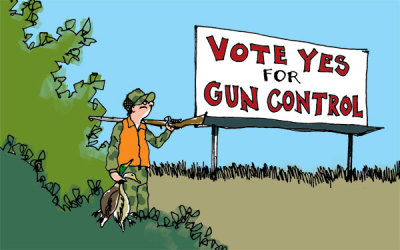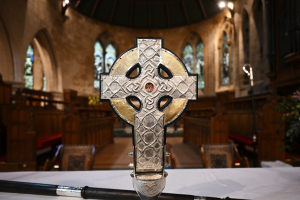Gun control or crime control?

What does Hollywood have to say about the Uvalde school shooting? You may remember an intriguing line in the 1995 film, “The American President,” starring Michael Douglas and Annette Bening, a romantic comedy-drama in which President Shepherd, a widower, falls in love with Sydney Ellen Wade, a feisty environmental lobbyist.
Drawn in by the delightful romance, the viewer can easily be seduced by the film’s promotion of all things liberal — political, social, and moral. (When Shepherd and Wade spend the night together in the White House, the “character issue” raised by the President’s snarky political opponent is made to look prudish.)
Especially given the film’s liberal bent, there is one snippet of dialogue worth exploring in the wake of the most recent slaughter of innocents. In an Oval Office staff meeting, President Shepherd’s Press Secretary, Robin McCall asks: “Can I tell my morning press gaggle that gun control is…” whereupon she is sharply cut off by Shepherd’s Chief of Staff, saying: “Crime control, Robin. Gun control means that we’re wimps and we’re soft on crime.” Properly understood, this play on political semantics is a distinction with a (deadly) serious difference.
Gun control, first of all, has to do most directly with the hotly-debated 2nd Amendment, which reads, simply: “A well-regulated Militia, being necessary to the security of a free State, the right of the people to keep and bear Arms, shall not be infringed.” From its opening clause, “the right to bear arms” obviously refers to local organized militia (in contrast to a national army).
Despite that narrow focus, the Supreme Court has ruled that the right to bear arms extends to private individuals, perhaps recognizing that there never was a time either before or after the 2nd Amendment when individuals were legally prevented from keeping guns for self-defense, hunting, and even sport. What the Amendment doesn’t specifically address, history does.
Given that history, the Court has also suggested that regulations can reasonably restrict weapons “not typically possessed by law-abiding citizens for lawful purposes.” Why any law-abiding citizen would need an assault weapon for lawful purposes is the obvious question. Justifying private ownership of such weapons under the 2nd Amendment stretches the intent of the Amendment beyond all reason. Nor, logically speaking, is there a slippery slope to be feared, as in “Today, assault weapons; tomorrow, handguns.” There’s a bright line between the two.
With each mass shooting by a mentally or socially-disturbed “nutter” using an assault weapon, you can bet the farm that liberal politicians will rush to the scene and piously cover the caskets with a pall of pleas for gun control, as if gun ownership is the problem. But you’ll not likely see those same politicians flocking to Chicago where, day in and day out, young people the ages of the Uvalde victims are being killed — not by twisted “nutters,” but by neighborhood gangbangers with handguns.
When 19 kids are killed all at one time in a classroom, the problem invariably is gun control. When over 3,500 kids and adults are shot every year in one (liberal-run) city alone, the problem, magically, is not gun control, but racial, educational, and economic inequity.
Unwittingly, the Chief of Staff’s fine distinction is crucial. The problem is not so much gun control as crime control. Teach a young man to fear God, obey his parents, respect authority, and love his neighbor, and you will have solved the crime problem. In which case, there won’t be a gun problem. As usual, political liberals have the legal cart before the moral horse.
F. LaGard Smith is a retired law school professor (principally at Pepperdine University), and is the author of some 35 books, touching on law, faith, and social issues. He is the compiler and narrator of The Daily Bible (the NIV and NLT arranged in chronological order).




























